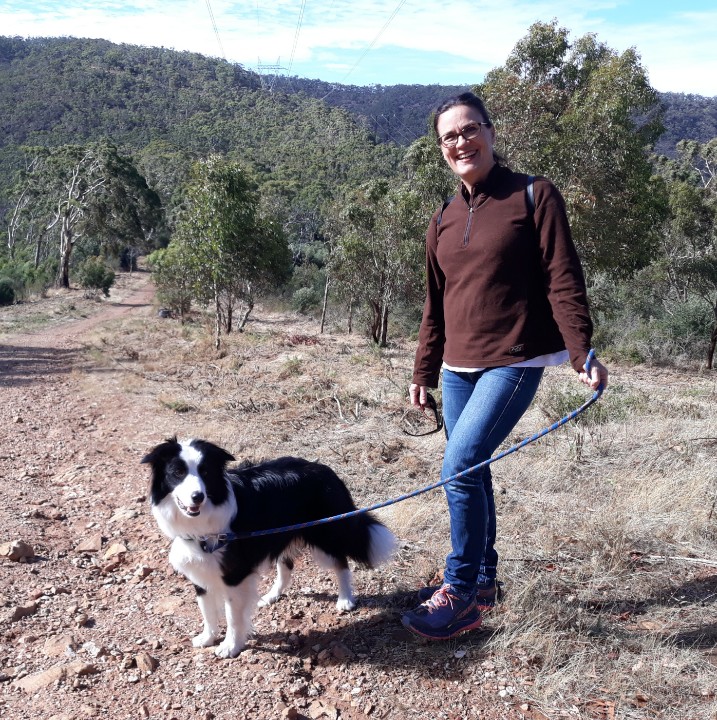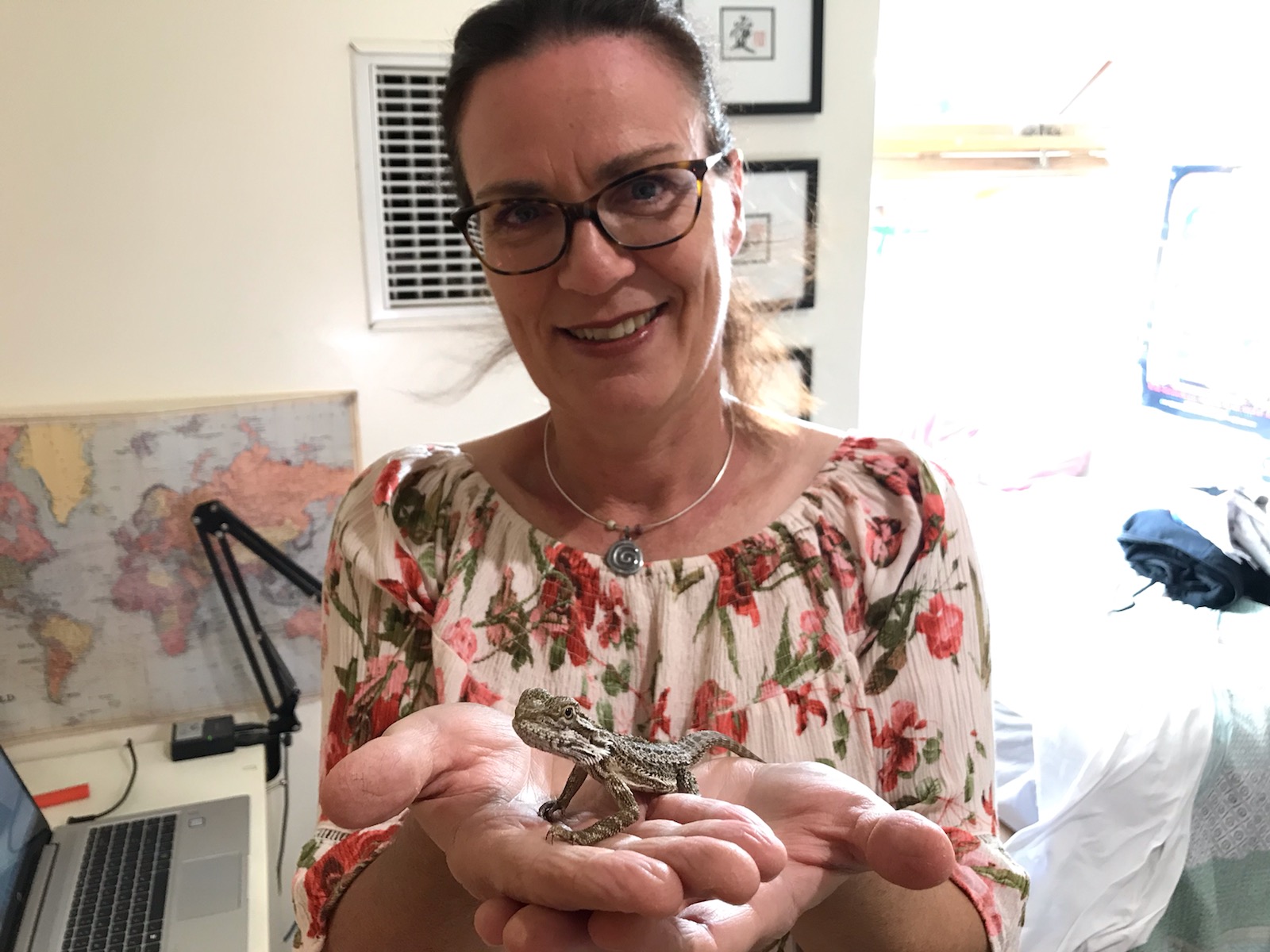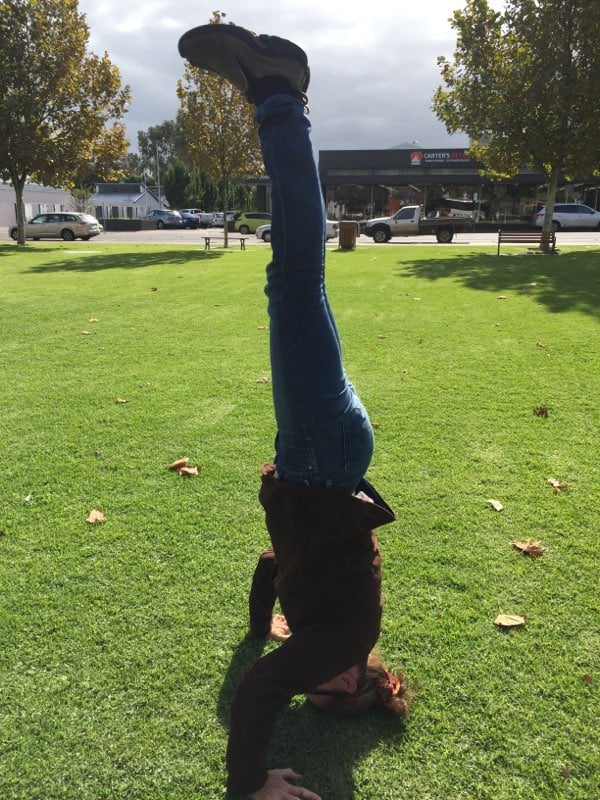MUSOS OF THE ASO: Belinda Kendall-Smith, Tutti Double Bass
- Meet the Artists

Belinda Kendall-Smith has been with the orchestra since 1994 and describes the double bass as having chosen her. Her current instrument was found impaled by a chair! She is excited about the recent extension to its bottom string, allowing her to play lower than previously, and it’s “a powerful, full-body experience”!
To Belinda, “music is everywhere. It is tied to the most special and significant times of our lives, but also part of the fabric of our everyday lives”. She believes a life without music would be a grey palette indeed. Read on as Belinda regales us with tales of racing to jazz concerts with her family, favourite ASO memories, touring with a favourite band from her teenage years, and much more!
Hometown:
I grew up inDunedin, New Zealand and Brisbane, Queensland
Education:
University of Queensland: B.Mus (1st Class Hons) and PhD (Music)
When did you know you’d make your career in music?
I was accepted into Law School and had to make the definite choice to study music instead.
If you weren’t a professional musician what would you be?
A writer or an editor. Grammar is my guilty pleasure! Since my school days, I have loved English and now my daughter is studying English Literature at University, so I have a partner in crime with whom to discuss all things literary.
How did you choose the double bass?
The Principal at my school wanted to sell the school double bass, as nobody was using it. My mum (the music teacher) quickly needed to find someone to play it. Having said that, I am so pleased that the bass chose me – it has taken me all over the world and given me a rich and interesting working life.
Is there anything special about your actual instrument/does it have a name/any quirks?
The gentleman who owned my instrument before me found it in the 1950s in a Manchester orchestral storeroom with a chair leg through one of the bouts. The chair was still there! I believe my instrument dates from about the 1850s and is most likely German or Czechoslovakian. I have only owned the bass for about five years, but it is the instrument of a lifetime for me. Very excitingly, a low C extension has now been fitted to my bass; this allows me to play two tones below the conventional low E string. It’s a powerful, full-body experience to play the low C notes!
Describe the best thing about being a musician:
I love playing the most incredible pieces of music with my wonderful ASO colleagues. I love both the brainpower and physicality involved with our job and I feel it is an immense privilege to be able to play for our audiences each week. The level of camaraderie within orchestras is very special; we have strong connections with the members of other orchestras too, because of where we grew up or where we studied.
Who has influenced you most as a musician?
I would have to say John Curro, who was the founder and leader of the mighty Queensland Youth Orchestra from its inception in 1966 until his death in 2019. I was involved with that organisation for 11 years from the age of 13 to 23, so it was a formative time in my musical development, encompassing the years of both high school and university.
If you could play a different instrument, which would you choose and why?
Trombone. I love the mellow, low, brassy tones.
Which solo or moment in the double bass orchestral repertoire is your favourite?
The cello and double bass duet from Verdi’s opera, Rigoletto. Actually, it features a few singers too!
What’s your most memorable performance with the ASO?
To be honest, they are all memorable. I recall the State Opera’s Ring Cycle of 1998 – the first homegrown Ring Cycle – was a very special event of mammoth proportions. It was a three-month undertaking (rehearsals and three complete cycles presented) and at the end of the last Gotterdammerung, the orchestra was invited up to the stage to take a bow. That was a magical moment after three months in the pit. Another highlight for me was back in 1996 when the ASO toured Australia with the band Split Enz. My teenage years were spent listening to Split Enz albums, so it was incredible to meet the guys in the band and spend a few weeks touring around with them. Their keyboard player had undertaken the orchestration of many of their most famous songs, but in all cases, the character of the songs was quite dramatically altered.
What’s your first memory of an orchestral concert?
My first orchestral memory is of my parents taking me to a concert that the Queensland Symphony were playing in the Brisbane Botanic Gardens. The opening piece was the March of the Toreadors by Bizet and I can still remember the goose bumps I had from that electrifying opening. I think I was sold on being an orchestral performer from that moment.

Despite not being able to perform in concerts during 2020, you still had to remain fit to play for when concerts resumed. How many hours a day are were practising, and what repertoire were you selecting? Where in the house do you practise?
I play my instrument for at least a couple of hours every day, some days I concentrate on studies, some days orchestral repertoire, some days jazz pieces. I didn’t really change what I played at home. My children were all at home until recently, so I have been enjoying playing music with them. I have a dedicated practice room, but sometimes it’s nice to ring the changes and play in a different room or even outside under the grapevine, in good weather.
What is the thing you most craved whilst living in isolation?
Exercising in the Adelaide Hills and Haigh’s dark chocolate. I missed seeing my family and friends.
When you’re not performing or practising, what do you enjoy doing in your free time?
Hanging out with my family, bushwalking, reading, going to the beach in winter.
When you’re not listening to classical music what do you listen to?
All sorts of other music! I love 70s and 80s rock, klezmer, swing, traditional Celtic.
Name three pieces of music you love, and why?
1. The Dies Irae from Verdi’s Requiem. It’s so dramatic and alarming.
2. The Overture from Mendelssohn’s Midsummer Night’s Dream. It’s the most sparkling piece of fairy music ever written and I am always amazed to think that Mendelssohn was only 17 years old when he composed it!
3. Mahler’s Symphony No. 5, which to me signifies the entire life experience (with all of its trials and tribulations) of one person.
What has been your most memorable musical experience as an audience member?
During the 2019 Adelaide Festival, I thoroughly enjoyed the Kosky/1927 Magic Flute production. I found the use of projections fascinating and because the singers were always facing forwards, the sparkly Mozart score was very clear. It was an outstanding production.
Do you come from a musical family?
Yes – my mum was a classical pianist, flautist and high school music teacher and my dad taught himself to play the clarinet and saxophone. There was always music in our house as I was growing up. I can clearly remember that Shostakovich symphonies were often played loudly in the morning to get me out of bed! My parents were avid jazz fans and on one memorable occasion, we had tickets to see Don Burrows and George Golla at the Brisbane Concert Hall. However a few hours before that, Don and George were presenting a free concert on the Brisbane Riverstage. Like crazy jazz fans, my parents took me to the free concert and then we raced back to the Concert Hall in time to catch Act II.
Name three things people may not know about you?
1. I recently joined a 5-piece swing band
2. I can do headstands
3. I love Bearded Dragons and my son has one as a pet.

What’s your idea of a perfect day in Adelaide?
Going on a long walk on a wintery day, either in the Adelaide Hills or at the beach.
If you could ask one composer one question what would it be?
Herr Beethoven, why are there so many notes on the last two pages of your ninth Symphony (bass part)?
What piece of music never fails to move you?
The Intermezzo from Mascagni’s Cavalleria Rusticana. This opera falls within the “verismo” style, which depicts the ordinary lives of people, rather than focussing on other-worldly characters or themes. The Intermezzo is a little oasis of sublimity within this one-act opera.
What’s your favourite type of food?
A thousand different varieties of soup.
What’s the weirdest thing in your fridge/pantry?
5 different jars of jalapenos.
What books are on your nightstand?
Murakami’s Kafka on the Shore (a gift from my daughter), Ray Bradbury’s Fahrenheit 451 and a recent publication Mammoth by Chris Flynn (narrated by a 13,000-year-old extinct mastodon, it’s the story of how a collection of prehistoric creatures came to be on sale at a natural history auction in New York).
Do you speak any other languages?
French and German
